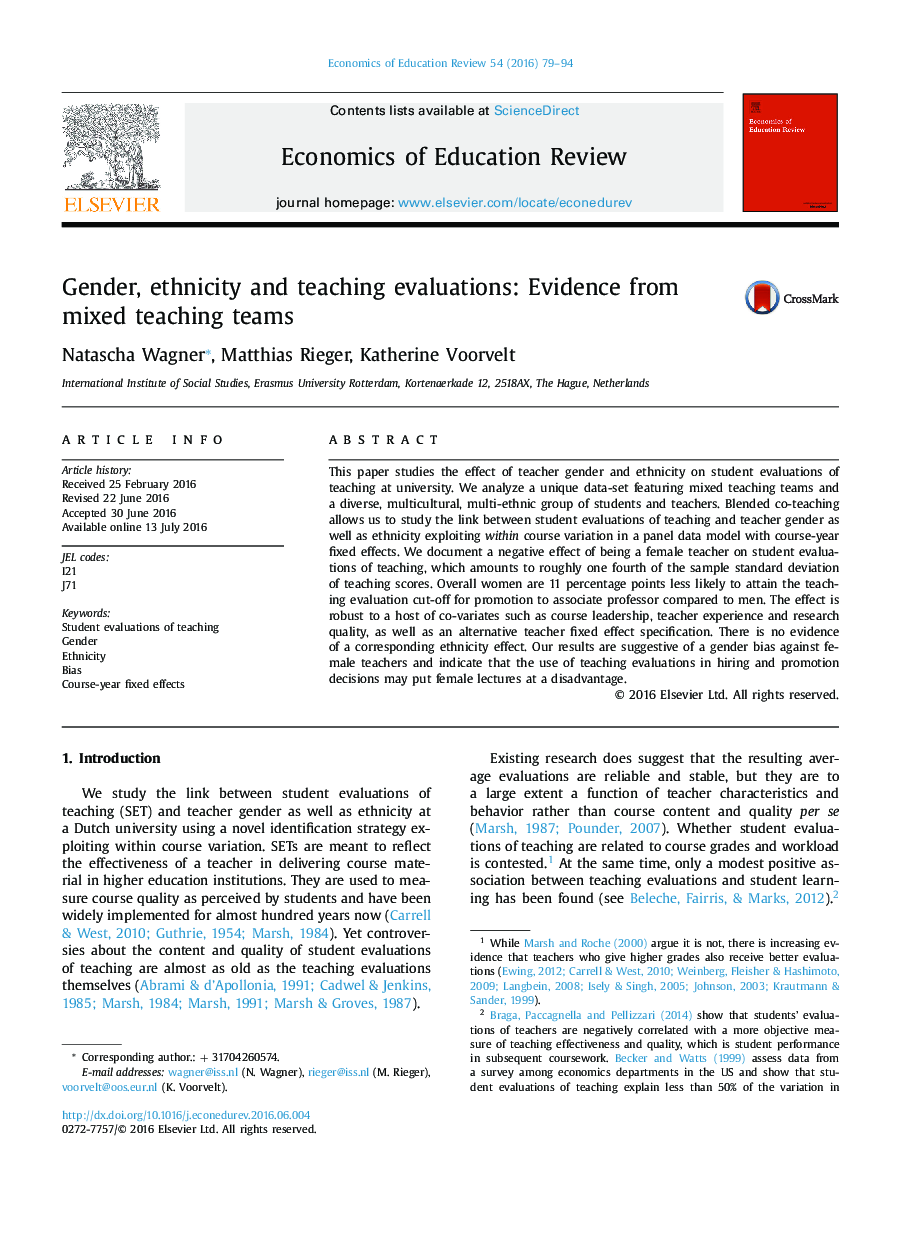| Article ID | Journal | Published Year | Pages | File Type |
|---|---|---|---|---|
| 354237 | Economics of Education Review | 2016 | 16 Pages |
•Estimates the effect of teacher gender and ethnicity on course evaluations.•Studies mixed and ethnically diverse teaching teams at a Dutch university.•Proposes an identification strategy based on within course or teacher variation.•Documents a negative female teacher effect in student evaluations of teaching.•Suggests that teaching evaluations may disadvantage female lectures.
This paper studies the effect of teacher gender and ethnicity on student evaluations of teaching at university. We analyze a unique data-set featuring mixed teaching teams and a diverse, multicultural, multi-ethnic group of students and teachers. Blended co-teaching allows us to study the link between student evaluations of teaching and teacher gender as well as ethnicity exploiting within course variation in a panel data model with course-year fixed effects. We document a negative effect of being a female teacher on student evaluations of teaching, which amounts to roughly one fourth of the sample standard deviation of teaching scores. Overall women are 11 percentage points less likely to attain the teaching evaluation cut-off for promotion to associate professor compared to men. The effect is robust to a host of co-variates such as course leadership, teacher experience and research quality, as well as an alternative teacher fixed effect specification. There is no evidence of a corresponding ethnicity effect. Our results are suggestive of a gender bias against female teachers and indicate that the use of teaching evaluations in hiring and promotion decisions may put female lectures at a disadvantage.
